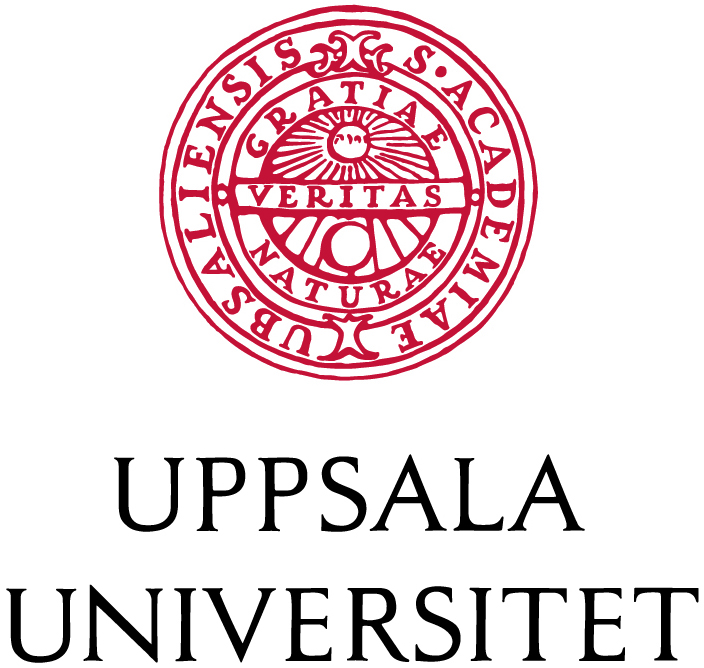Panels
1. Centering the social in smallholder livelihoods in the global South
Main organiser: Gwen Varley, SLU, Uppsala
A just transition towards a sustainable society needs to be built on a fuller understanding of the social aspects that delimit, support and even limit sustainability. This panel focuses on the social foundations of the remarkable resilience of smallholder farming households and livelihoods in the rural global South. Discussions with rural communities reveal the key social factors that explain this resilience despite large-scale rural transformations, going beyond the economic and technical. Understanding smallholder farming holistically is key for successful sustainable transitions.
Following discussions among researchers of the Rural Development in the Global South group at SLU, we invite papers exploring, for example:
- the rural household as a site of care and inter-generational support;
- the countryside as a place of retreat during times of personal and systemic crisis;
- the smallholding as a space of subsistence production and security;
- the value attached to land above and beyond its exchange value; and
- the uncounted and under-appreciated reproductive labour that sits beyond the orbit of market arithmetic
We are particularly interested in papers with a strong empirical grounding, especially those with a longitudinal perspective, and welcome papers from any country or region of the global South.
2. Co-creating knowledge in land research: how do we navigate contentious settings?
Main organiser: Juliana Porsani, Södertörn University, Stockholm
This panel is organized by LARRI (Land Rights Research Initiative). The co-creation of knowledge between researchers and various stakeholders is key in ensuring that research findings reflect experienced realities, and in increasing the chances that evidenced-based policies have socially just outcomes.
However, particularly when researching contentious contexts and themes, such as those related to large-scale land acquisitions (investments or grabs) and land rights in Global South contexts, co-creating knowledge with all involved stakeholders is rife with challenges and ethical dilemmas. For instance, by establishing relations with civil society activists, the researcher may face difficulties to establish credible relations with the government and investors. Additionally, even if informants are anonymized, answering questions about politically sensitive topics such as land loss may imply risks for vulnerable participants. Still, to ensure the creation of feasible and representative solutions, a range of stakeholders must be engaged, ranging from local communities and grassroots organizations to private enterprises, governments and development agencies.
In this panel, we welcome presentations of studies on knowledge co-creation related to land investments and land rights in Global South contexts. We are interested both in the methodologies for co-creating knowledge in such land research, and the results in relation to contemporary rural transformation, the livelihoods of rural communities, policy development, etc.
3. Co-creating Knowledge with Indigenous Peoples of the Global South
Main organiser: Bartira Fortes, Södertörn University, Stockholm
Knowledge co-creation seeks to democratize scientific production, practice, use and scope. These ambitions resonate both with participatory emancipatory methodologies employed since the 1960s by scholars working with marginalized groups in Latin America (e.g., Paulo Freire and Orlando Fals Borda) and more recent decolonial and Indigenous knowledge-based approaches. In this panel, we emphasize the crucial difference between conducting research on Indigenous peoples and research carried out together withlocal actors, anchored in a critique of Western science as instrumental to the oppression and exploitation of other peoples. We welcome presentations related to experiences within the field of co-creation of knowledge with Indigenous populations of the Global South. Some questions posed in the panel are: In which ways, and under which assumptions and goals are researchers striving to co-create knowledge with Indigenous groups? What challenges are we facing to establish ethical relations under irremediably asymmetrical power conditions (also among stakeholders)? How are we dealing with these challenges? What can we learn from each other’s experiences? These questions (and self-reflections) are pressing, given the relatively recent mainstream turn towards knowledge co-creation that seems to neglect the contentious relations between dominant and alternative knowledge systems that have been historically subjugated and invalidated.
4. Community-based conflict management in urban and rural areas
Main organiser: Emma Elfversson, Uppsala University
How can violent communal conflicts be addressed and prevented? Communal violence causes thousands of deaths and forced displacements each year, and poses significant challenges to local livelihoods and human security. Current policy advice and scholarship generally emphasize community-oriented strategies to address conflict. However, research has rarely moved beyond a general emphasis on a need for locally anchored strategies, and has overlooked how urban-rural dimensions condition the strategies employed by conflict management actors. This panel aims to advance theoretical and empirical knowledge on the management and prevention of communal conflict, with particular focus on varying dynamics across urban and rural contexts. While individual contributions may focus on communal conflict resolution in either urban or rural areas, jointly the panel will advance knowledge on how distinct dynamics impacts on conflict management strategies.
5. Energy Poverty and Development Transformation
Main organiser: Ranjula Bali Swain, Stockholm School of Economics
The rising greenhouse emission gap is creating a ‘closing window’ for exiting the climate crisis. Without a rapid transformation, the world will fall short of the Paris Agreement goal of limiting global warming to below 2°C, preferably 1.5°C. Energy Poverty is one of these major transformation challenges along with Climate change and the security of the energy supply. Acknowledging this, Sustainable Development Goal 7.1 focuses on energy poverty and seeks to ensure universal access to affordable, reliable and modern energy services. Energy poverty is both a result and a cause of poverty. Lack of energy constrains the income-generating potential, thus inducing a vicious cycle of limiting an individual’s ability to access energy.
This panel will consider papers addressing various aspects of energy poverty and development.
6. In search for a Nordic model of co-creation
Main organiser: Alexander Chen, Roskilde University
The panel asks if it is possible to identify a Nordic model of co-creation, and to which degree can the rest of the world draw upon the experiences of the Nordic model? Nordic countries have been recognized as frontrunners in co-creation, although there has been no systematic analysis of the governance factors that have fostered a supportive environment for Nordic co-creation. We ask if it is meaningful to analytically aggregate the Nordic countries, or should we speak of Danish, Swedish, Norwegian, Finnish, or Icelandic models of co-creation. Furthermore, how can we rigorously study the phenomenon on a comparative level?
7. Making international development cooperation work
Main organiser: Fredrik Söderbaum, University of Gothenburg
This working group focuses on the longstanding question what makes international development cooperation successful; a question that has attracted new attention in the face of a changing world order and a new international aid architecture with an increasing number of diverse development actors and innovation in international development cooperation. Particular focus is given to donor-recipient relationships in the management, delivery and implementation of international development cooperation.
While the panel/working group is based on paper presentations, it also seeks to stimulate co-creation and wider debate. We anticipate two sessions/panels, each consisting of about four papers. We invite papers from all disciplines and from junior as well as senior scholars. We also invite papers or participants from thinks thanks, consultancy firms and the policy making community in order to contribute to co-creation. The working group is co-organized by SweDev and the Development Research School and led by Fredrik Söderbaum and Jesper Sundewall.
8. The future of land in sustainability transformations
Main organiser: Linda Engström, SLU, Uppsala
Sustainability transformations, including attempts to preserve biodiversity, reduce carbon emissions and to ‘modernize’ agriculture, are increasingly affecting land use in the rural Global South. Such lands are, however, already enrolled in other uses including subsistence and cash crop farming, cattle grazing or energy production. The potential to achieve sustainable and just land futures is therefore closely tied to different perspectives on development.
This panel invites submissions to explore grounded perspectives on land futures: Has the recent wave of investments in land across Global South, by some termed land grabs, subsided? If so, will it open up for more localised and participatory approaches to land use governance? Alternatively, is the current halt to large ‘land grabs’ simply an effect of the Covid pandemic and related economic slowdown, providing leeway for new global ‘development’ agendas for the rural Global South?
We welcome submissions exploring perspectives on land futures in the following themes:
How sustainability transformations, including green and just transition efforts, affect land uses.
Contrasts between planned and actual land-based investments.
Alternative land-based development initiatives that builds on participatory approaches.
Analyses on current global development agendas with impacts on land use.
We welcome submissions from any rural Global South setting.
9. Theorizing sustainable transition in the Global South
Main organiser: Carsten Nico Hjortsø, University of Copenhagen
The complexity of sustainable transition (ST) in the Global South is often analysed with concepts such as the Multilevel Perspective, Strategic Niche Management and Transition Management developed in the Global North. In this panel, we consider whether they are directly applicable in the Global South, or if they have a more limited explanatory power here due to essential social, political, economic and ecological differences between North and South societies. In that case, we aim to engage in a discussion at the more fundamental level about the basic ontological assumptions of the dominant ST theorizing and deliberate over new and innovative theoretical approaches for grasping more accurately the nature of ST process in Global South settings.
10. Towards Decolonizing Climate Science: The Place of African Indigenous Knowledge
Main organiser: Geoffrey, Nwaka, Abia State University, Uturu, Nigeria
Africa contributes least to but suffers the most from climate change. Climate science needs to integrate the traditional knowledge of local communities in Africa. Most African societies have over the years developed intricate systems for forcasting weather conditions in order to prevent or mitigate natural disaters. The unprecedented scale of climate change may have undermined the reliability of many traditional indicators and techniques for preventing or adapting to climate induced disasters. We invite papers that explore how those who hold and use traditional knowledge can partner with scientists and other stakeholders to co-produce updated knowledge for better climate risk management.
11. Co-creation, an effective method for the transition to a sustainable Africa and beyond
Main organiser: Magdalena Eriksson and and Marie Thynell, University of Gothenburg
We propose an open and inclusive panel to discuss co-creation to avail academic knowledge and research results, from the Global North and the Global South to society, to promote sustainable development.
Co-creation has proven useful to inspire local voices, to define apt research projects and to develop relevant products. A next step may be for students to market their “products” and thus make a living for themselves. This is where experiences of diverse local actors and interest groups require an arena to meet and discuss viable ways forward.
The panel is intended to highlight such initiatives and discusses how to match stakeholder needs and ways to establish new and successful business endeavours. In particular, the potential of innovation and incubation hubs as arenas for researchers and students to engage with stakeholders, businesses and investors are of interest.
We invite proposals to share and discuss experiences of co-creation, including transdisciplinary projects, at different stages of implementation, aimed at contributing to fair and sustainable development.
The panel is open to any subject of co-creativity at any location of relevance to North-South collaboration. We look forward to receiving contributions that highlight diverse practices, challenges, and possibilities.
12. Towards a more equal co-creation of knowledge
Main organiser: Maria Eriksson Baaz, Mats Utas and Swati Parashar, Uppsala University
The inequalities and colonial heritage inherent in North-South knowledge production, not the least within development research, has been discussed and documented for a long time. This panel explores the circumstances and experiences of researchers located in or close to research sites in the Global South (sometimes named local researchers, research assistants) who are contracted by more privileged researchers located in the Global North to conduct research. The panel welcomes any submissions addressing inequalities in North-South knowledge production. Yet, it sets out to move forward by discussing ways ahead for a more equal co-creation of knowledge. Hence, rather than simply describing the state or the art, it welcomes papers that are forward looking, for instance discussing good examples or ways to overcome the various obstacles involved.
13. Other abstracts on cutting-edge research on global development
Main organiser: the main conference organizing committee
A panel for paper abstracts that do not fit into the other panels but are relevant to global development processes. To this panel we welcome all writers who want to present cutting-edge articles about new knowledge relevant to global development.
Contact
Academic Conferences
NorDev 2023 administration
nordev2023@akademikonferens.se
Phone +46 18 67 10 03
Important dates
31 May: Deadline to register for workshop leaders and research presenters
31 July: Deadline to register for conference attendees
21-23 August 2023: Conference is going on



